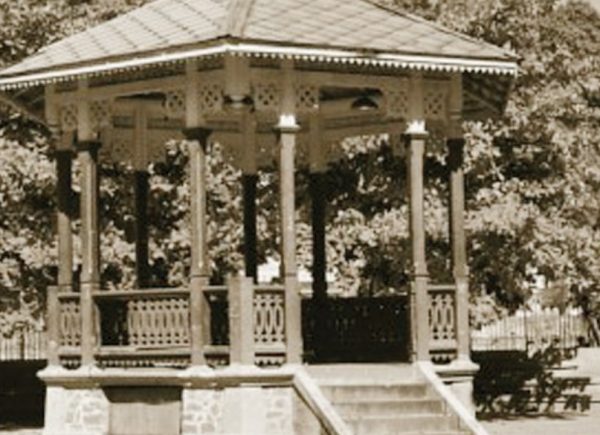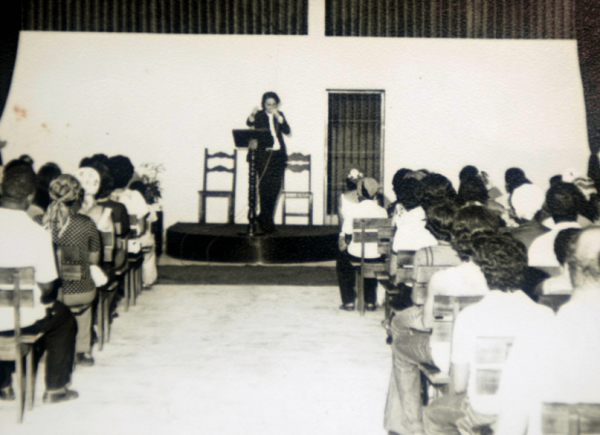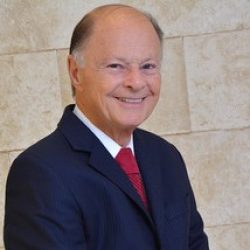What we Believe
The Universal Church of the Kingdom of God (UCKG) was formed in 1977, in Brazil. It owes its origins to a successful evangelistic programme conducted by Bishop Robert McAlister, a Canadian missionary in the Pentecostal tradition.
Edir Macedo – who went on to found the UCKG – was one of the early converts. With the blessing of Bishop McAlister, he started to hold services under a small park shelter in Rio de Janeiro. His passion was to reach out to neady, less privileged people who were often excluded by established religions. As Pastor Macedo’s services grew in popularity, he used cinemas and local halls to accommodate growing congregations, attracting people from the streets to the expanding movement. Shortly afterwards the UCKG officially opened its first church where previously was a funeral parlour.
More church openings followed and the movement expanded nationally across Brazil. Today there are approximately over 5,000 churches in Brazil, with the headquarters in São Paulo at Av. Celso Garcia 609, Brás (Temple of Solomon) holding up to 10,000 people at a time.
Following an exploratory visit to the USA, the UCKG was established in New York in 1986. Today there are churches in Brooklyn, Manhattan, Miami, Los Angeles and many other US cities. UCKG then developed its presence in Canada, Mexico, Argentina, Paraguay, Venezuela, Colombia, Bolivia, Chile, Guatemala and Ecuador. There are also churches in Jamaica, Trinidad and Guyana, Barbados, Antiga & Barbuda and other islands in the Caribbean.
In Europe, it established congregations in Portugal, Spain, UK, Germany, France, Netherlands, Belgium, Luxembourg, Italy, Switzerland, Poland, Russia, Latvia, Sweden, Ukraine, Romania and others. In Africa churches were formed in Angola, South Africa, Mozambique, Cape Verde, Kenya, Lesotho, Gabon, Côte d’Ivoire, Malawi, Uganda, Botswana and other countries. In Asia, churches exist in India, Singapore, Malaysia, Hong Kong, Philippines and Japan, Taiwan, Thailand; Macau, Timor Leste, United Arab Emirates, Korea, Oceania Papua New Guine, New Zeland and Fiji.
Here in Saint Lucia the Universal Church first opened its doors on October 2011 around the corner of High Street and Chisel Street with a great faith and trust in the living God.
Due to growth, relocation to a bigger and better place was need (where we are currently located–25 Brazil street, opposite Derek Walcott Square) to offer the best conditions for everyone who visit us.
The church has also expanded with branches in others communities such as, Gros Islet, Dennery Village, and Vieux Fort.
Baptism in the Holy Spirit
Baptism in the Spirit of God is an act of grace performed by the Lord Jesus Himself in any who desires to be purified and walk in holiness. The Universal Church bases its faith and belief on the Word of God alone to ensure that there is no deception and that the Holy Spirit is the only one who leads the church.
The Lord’s Supper
The Lord’s Supper is highly important as a church ceremony. Not only is it a symbol of God’s people partaking in the body and blood of the Lord, but the church is strengthened physically and spiritually as each person is reminded of the blood that was shed for them and the high price with which their salvation was bought. It is a solemn time of renewing our covenant vows with God.
Tithes and Offerings
The Universal Church also believes that the Word of God teaches that the giving of tithes and offerings is sacred to Him. Tithing signifies faithfulness, and offerings represent the love of a servant for his Lord. Anyone who serves God is granted the right to an abundant life, as stated by the Lord Jesus in John 10:10, “I came that they might have life, and have it more abundantly.”
Our History

It all started in a small gazebo in the Meier neighborhood of Rio de Janeiro. With a portable speaker, microphone, and Bible, the then-pastor Edir Macedo Bezerra would climb up the seven steps of the gazebo to preach to the few gathered at the park every Saturday afternoon. This was the first step in the growth of The Universal Church, whose main supporter was Mrs. Eugênia Bezerra, mother of Bishop Edir Macedo.

The first church building was an old funeral parlor in the neighborhood of Abolição in Rio de Janeiro. That was where the first meeting was held on July 9, 1977, after the pastors and volunteers did simple renovations. The help of those first members was crucial. Albino da Silva found the property, and his wife Lindalva donated the fan to help with the intense tropical heat.

Bishop Edir Macedo
Founder
The founder of the Universal Church of the Kingdom of God, Bishop Edir Macedo, was born on February 18, 1945, in Rio de Janeiro, Brazil. He was the fourth child of Henry Bezerra and Eugenia de Macedo Bezerra. He married Ester Bezerra and later had two daughters of their own, Cristiane and Viviane, and an adopted son, Moyses.
He became a civil servant in 1963, organizing the operations of the State Lottery of Rio de Janeiro (Loterj), and worked at the Brazilian Institute of Geography and Statistics (IBGE) as a researcher in the economic census of 1970. He resigned from his 16-year career as a civil servant to dedicate himself to doing the Work of God full-time, which many of his detractors saw as reckless and irresponsible at the time.
Edir Macedo’s educational background consists of a Masters in Theology from the seminary of the United Evangelical University of Theology and the University of Theological Education in the State of São Paulo (Fatebom). An honorary doctorate in theology and Christian philosophy in divinity, in addition to a master’s degree in Theological Sciences at the Federation of Evangelical Religious Entities of Spain (FEREDE) in Madrid, Spain.
Published Work
Bishop Macedo has authored over 50 books on faith, doctrine, and biblical studies that have all focused on teaching a practical faith meant to be lived in an intimate relationship with God. His first published work propelled his ministry into the thousands of members as people were amazed to learn about the biblical truths behind the demonic practices of witchcraft and the occult that were (and still are) so common in Brazil. After the printing of “Orixas, Caboclos and Guides,” the doors of the Universal Church swarmed with people day and night, eager for deliverance from evil spirits and healing from sicknesses, and many new churches had to be opened, and pastors needed to be trained. From that point on, Bishop Macedo saw the need for more teaching to help unbelievers find salvation and grow strong in faith, and new books were written steadily over the years. Each of his books has been translated into various languages where the Universal Church is established worldwide. The release of the three books of his memoir trilogy created a revolution in the publishing industry in Brazil, where they were first published in the Portuguese language from 2012 until 2015. “Nothing to Lose,” by the Planeta Publishing Company, is based on extensive interviews with journalist Douglas Tavolaro.
The autobiography covers the many controversial issues surrounding his life, his struggles during persecution, his eleven-day incarceration under a corrupt justice system in 1992, and how he overcame insurmountable odds through his faith. He reveals secrets that had been kept for decades and intimate details of his personal life. He recounts the miraculous turn of events that allowed for the purchase of the Brazilian Record TV network during a tumultuous financial crisis in the country, and the constant attacks against his character and the church itself, proving that whatever God opens, no one can close. Volumes 2 and 3 of “Nothing to Lose” repeated the first book’s success. They cover the subjects of the purchases of the first radio and TV Record, the expansion of the Universal Church to countries around the world, and the unique struggles found in each place. The final book culminates constructing of the new Universal Church headquarters, the replica of the Temple of Solomon in Sao Paolo in 2014. The story recounts the poignancy of the once vilified Pastor Macedo finally preaching to a packed sanctuary filled with leaders of the same political, legal, and media institutions that once hated him yet were now respectfully in the inaugural meeting of the Temple of Solomon. God proves Himself faithful to those who are faithful.
If you’re interested in reading “Nothing to Lose”, you may visit a Universal Church near you to receive a copy.


